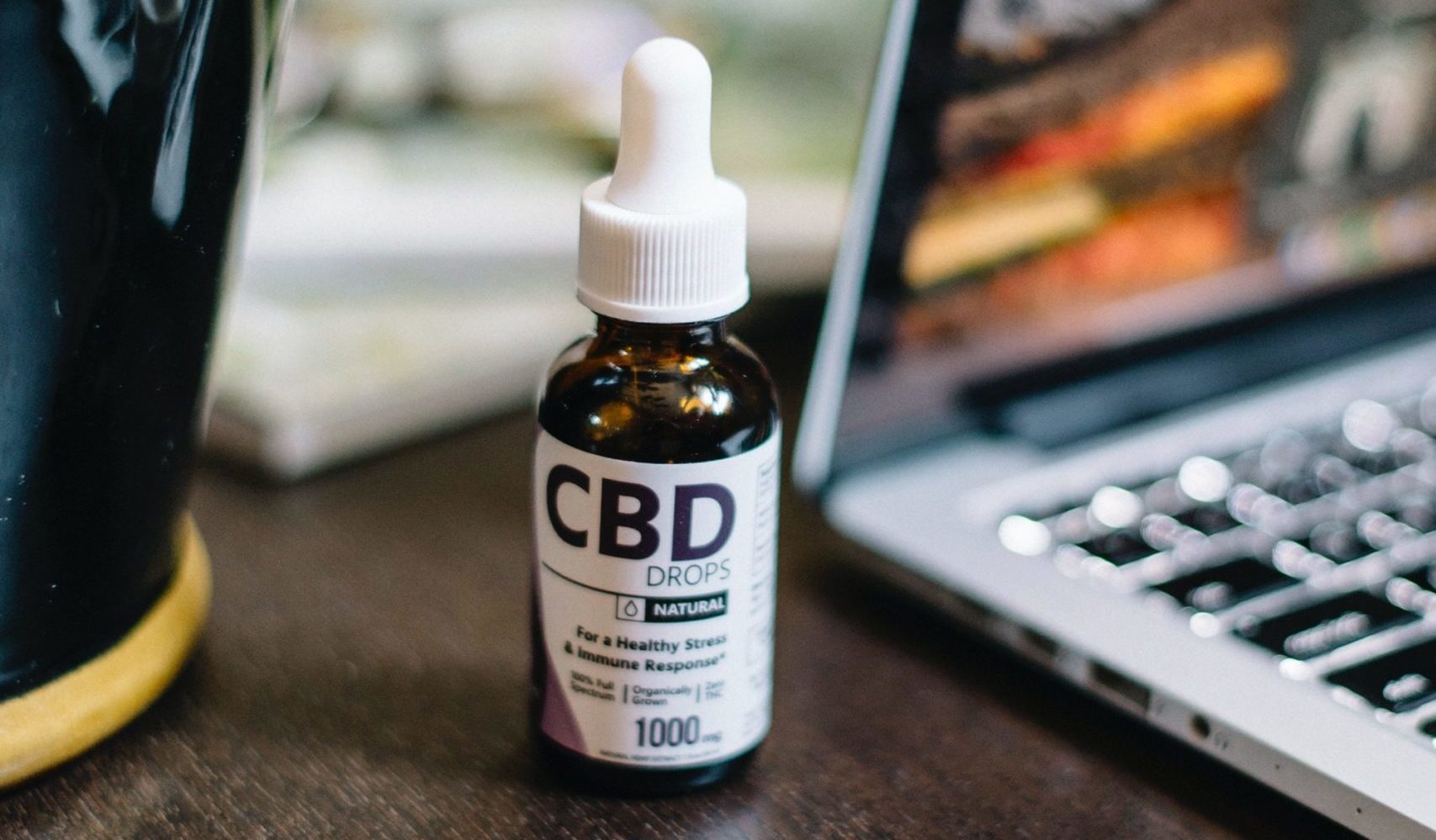CBD and Psoriasis: What Does the Research Say?
According to the National Psoriasis Foundation, more than 125 million people around the globe suffer from this immune condition, making psoriasis one of the world’s most widespread diseases. Psoriasis didn’t become this prevalent because it’s contagious, however; this condition is the result of an overactive immune response of unknown origin.
Over the years, the massive prevalence of psoriasis has led to the development of dozens of pharmaceutical drugs, supplements, and other treatments designed to cure or mitigate the symptoms of this condition. Many mainline drugs for psoriasis have terrible side effects without offering impressive results, and many alternative treatments have turned out to be nothing more than snake oil.
As a result, sufferers of psoriasis have become increasingly skeptical toward new treatments for this painful, disfiguring condition. It may come as some surprise, therefore, that thousands of members of the psoriasis community have embraced cannabidiol (CBD) with open arms. In this guide, we’ll explain why so many people with psoriasis have decided to use CBD.
What causes psoriasis?
It may come as some surprise that medical science has yet to uncover the exact reasons that psoriasis occurs. Scientific research has identified around 25 genetic variants that can increase your risk of psoriasis, and around 10% of people inherit these genes. Only 2-3% of the individuals who inherit psoriasis-related genes actually develop this condition, however, making the ultimate triggers of psoriasis something of a mystery.
It’s no mystery how psoriasis exhibits its symptoms within the body, however. Psoriasis is an autoimmune condition, which means that it’s caused by the faulty operation of your immune system, and when you have psoriasis, your T cells mistakenly identify your own skin cells as foreign invaders.
T cells are one of the most prevalent components of your immune system, and along with white blood cells, these immune agents become additionally concentrated in psoriatic areas. Your body then creates new skin cells in an attempt to fight back against the destructive actions of your immune cells, which leads to an accumulation of skin cells on your skin’s surface.
Symptoms of psoriasis
Over time, these additional skin cells form thick, scaly patches called psoriasis lesions. While psoriasis lesions itch and become painful, they get worse when you scratch them. In some cases, psoriasis lesions may disappear after a while only to return in response to triggers.
Psoriasis triggers vary from person to person, but it appears that many factors that cause oxidative stress also trigger psoriasis. Drinking, smoking, psychological stress, and sleep deprivation can all trigger psoriasis, and this condition is often comorbid with other immune disorders like rheumatoid arthritis and HIV.
When you have psoriasis, lesions are often limited to a certain area, but they can also be widespread across your entire body. Since psoriasis lesions often break affected skin, moving areas of your body that have been affected by psoriasis can be extremely painful. If you develop psoriasis lesions in places you can’t cover with clothing, this condition can also lead to social anxiety, depression, and other psychiatric conditions.
Research into CBD and psoriasis
While psoriasis is caused by an underlying immune disorder, psoriasis lesions themselves are caused by chronic inflammation. This type of long-term inflammation is itself, however, an immune condition that occurs when your body misidentifies healthy tissues as targets of an immune response.
Substances that reduce inflammation can, therefore, address both the underlying causes of psoriasis within the immune system and reduce the most prominent symptom of this condition. Over the last few years, scientists have closely examined the potential relationship between CBD and inflammation.
Research has also been conducted to determine whether CBD has any direct immunomodulatory effects. At present, research into CBD is hindered by the regulatory status of this cannabinoid, but there remains significant interest in the potential relationship between this non-intoxicating cannabinoid and the underlying causes of psoriasis.
Just this year, for instance, a new study was published in the journal Biomolecules detailing ongoing research into the relationship between CBD and keratinocytes, which are the most prevalent cells in your epidermis. This marks the first new study into the direct relationship between CBD and psoriasis in more than a decade, and hopefully, further research is forthcoming that will shed a scientific light on the increasing rate of CBD use among people with psoriasis.
CBD vs. THC for psoriasis
While there’s still a lot we don’t know about CBD and its potential benefits for psoriasis, we do know quite a lot about CBD itself and how it differs from THC. While some research has also been done into the potential benefits of THC for psoriasis, it’s clear that CBD and THC will deliver completely different results when used for this condition based on their innate dissimilarities.
Many people with psoriasis apply topical treatments in an attempt to mitigate the symptoms of this condition. Psoriasis is not an infection or another type of condition with a topical origin, however, and many mainline treatments for psoriasis are oral rather than topical.
When applied topically, CBD and THC may have similar results. Most topical formulations, after all, are not designed to deliver active ingredients into your bloodstream, and they target the upper layers of your skin instead. Unless the product formulation you’re using is explicitly designed for bloodstream delivery, using a THC topical for psoriasis is unlikely to get you high or cause any other unwanted effects.
All that changes, however, when it comes to internal use. Orally ingested or vaped THC could potentially be beneficial for psoriasis—we simply don’t know. What we know for certain, however, is that THC is an intoxicating, addictive drug that dramatically alters your mental state. Using THC for psoriasis could end up causing dependence or psychosis, and this cannabinoid could worsen symptoms of anxiety that are often comorbid with psoriasis.
CBD, however, is non-intoxicating and non-addictive, and this cannabinoid does not cause any significant psychotropic effects. If you decide to use a cannabinoid to target the ultimate immunomodulatory causes of psoriasis, CBD is far less likely to have negative effects than THC.
CBD vs. conventional psoriasis treatments
Over the years, a variety of both topical and oral pharmaceutical treatments for psoriasis have been developed. Many of these drugs are designed to target the underlying immune-related causes of psoriasis while others target the topical symptoms of this disease. Light-based treatments have even been developed for this condition.
What all conventional psoriasis treatments share, however, are serious side effects. Cyclosporine, one of the most common psoriasis drugs, commonly causes kidney damage, tremors, hypertension, and abnormal hair growth. Soriatane, a type of retinoid, is also used to treat psoriasis, and this drug can cause hypothyroidism, liver damage, and severe birth defects if used while pregnant.
Even corticosteroids, which are commonly applied topically to treat psoriasis, can cause glaucoma, hypertension, and bizarre psychiatric symptoms, and using UV light to treat the topical symptoms of psoriasis can increase your risk of skin cancer. There are no approved mainline treatments for psoriasis that can genuinely be considered safe.
Side effects of CBD for psoriasis
CBD, on the other hand, does not appear to have any major side effects whatsoever. A single study conducted on animals indicates that using incredibly high doses of CBD could cause liver damage, but these results have not been replicated in any other studies. All other available research indicates that CBD has remarkably low toxicity and that its most-reported side effects include sleepiness, dry mouth, and nausea.
Unlike THC, CBD does not make you feel high, and unlike prescription medications for psoriasis, CBD does not cause birth defects, high blood pressure, or nervous system damage. People with psoriasis can use CBD without expecting any serious negative effects.
Interactions between CBD and prescription medications
If you’re currently using prescription drugs for psoriasis or any other condition, you should use CBD with extreme caution. Like most prescription drugs, CBD is dependent on the CYP3A4 enzyme produced for metabolism. This enzyme is produced by your liver, and using CBD can suppress its production, leading to the buildup of prescription drugs in your system.
It does not appear to be dangerous for CBD to build up in your body. Many prescription drugs, however, can become dangerous or even fatal if they are not metabolized efficiently, which means that the suppression of the CYP3A4 enzyme caused by CBD can lead to serious harm.
This enzyme is also suppressed by grapefruit and other citrus fruits, so in general, drugs that are dependent on CYP3A4 come with a “grapefruit warning.” Any drugs with a grapefruit warning should not be used with CBD, so make sure to consult with your doctor before you try using CBD for psoriasis.
The ongoing debate over CBD for psoriasis
At this point, CBD has reached such a degree of popularity that thousands of people with psoriasis have used this cannabinoid. Anecdotal testimony from sufferers of CBD who have used both topical and internal CBD products abounds, which makes it easier to predict the potential effects of CBD for psoriasis even though scientific research on this subject is woefully lacking.
Many people who have used CBD for psoriasis report incredible results. Claims of reduced psoriasis symptoms are just as common among people who have used CBD topicals as they are among those who have used CBD tinctures, capsules, or vapes, which has given hope to many psoriasis patients who have become disillusioned with the reigning pharmaceutical model.
At the same time, however, there are also people with psoriasis who have reported that CBD did not provide the results they were looking for. Even within the anecdotal testimony surrounding this subject, the usefulness of CBD for psoriasis is a subject of some debate, underscoring the pressing need for more scientific research into the matter.
Ask your doctor
Doing your own research is important, but it’s equally important to rely on expert help as you decide whether you should use CBD for psoriasis. Medical practitioners are becoming more acquainted with the idea of suggesting CBD for serious conditions, so it’s likely that you’ll be met with a receptive attitude when you broach the subject with your GP. Even if it’s just to make sure that CBD does not contraindicate any of the prescription drugs you’re taking, consulting with your physician is a good idea before you start using this cannabinoid to treat psoriasis or for any other reason.
CBD for psoriasis: the bottom line
In the end, what does research say about CBD and psoriasis? Surprisingly little, it turns out. Only a very limited number of studies have been conducted into this subject specifically, and when it comes to studies on CBD for inflammation, immunomodulation, and the other underlying causes of psoriasis, we’ll have to invite you to do your own research since we’re limited in what we can say.



































